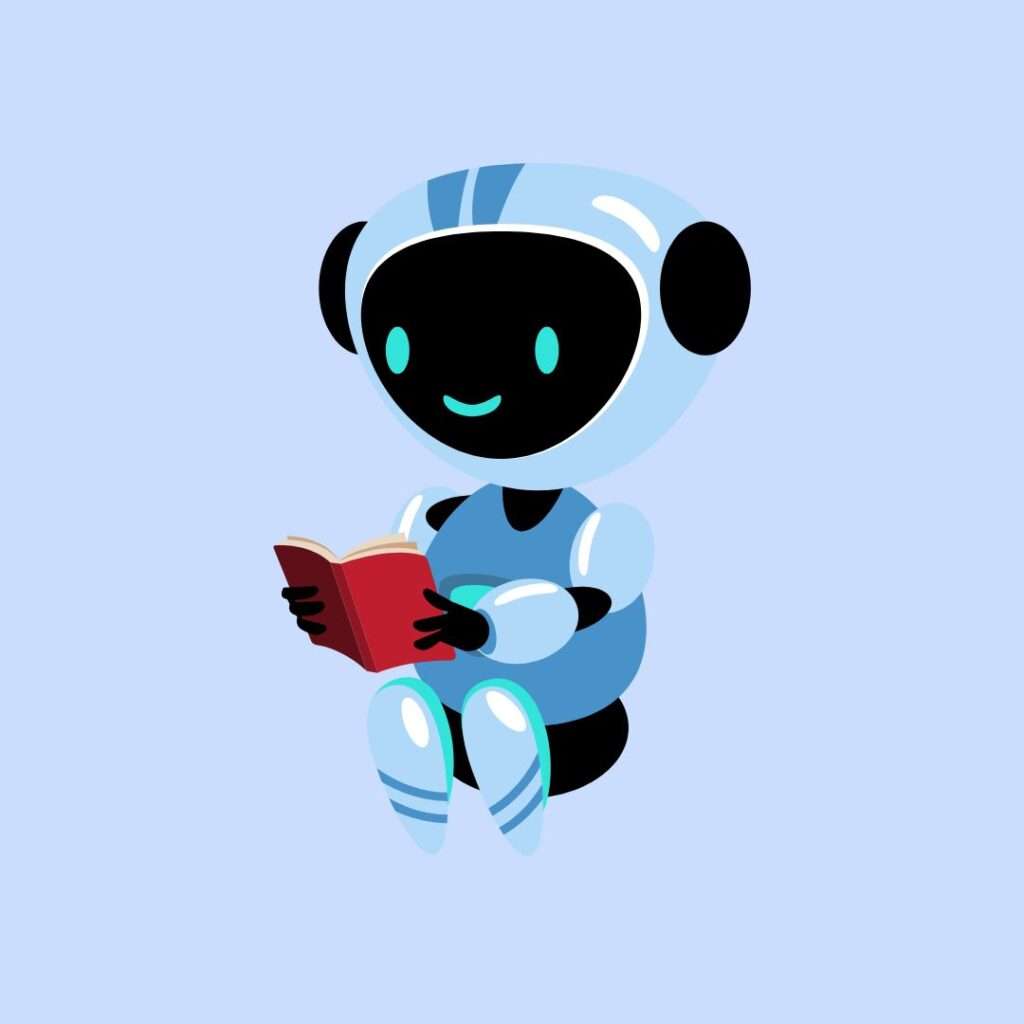Table of Contents
- Introduction
- AI Applications in Editing and Proofreading
- AI-driven Content Generation and Personalization
- Automating Marketing and Distribution with AI
- The Future of AI in Book Publishing
- Conclusion
Introduction
The book publishing industry is transforming with the emergence of artificial intelligence (AI) technologies. AI refers to computer systems that can perform tasks normally requiring human intelligence, such as visual perception, speech recognition, and decision-making. In recent years, AI tools have started making inroads into various facets of the traditional book publishing workflow – from content creation to editing, marketing, and distribution.
Overview of AI and Book Publishing Intersection
While still in its early days, the intersection between AI and book publishing holds exciting potential. AI algorithms can analyze large volumes of data to derive insights that are not easily discernible to humans. This data-driven approach can help publishers better understand reader preferences, target niche audiences, and optimize their operations. However, using AI also raises concerns regarding creative integrity, diversity, and the future of human jobs in the publishing industry.
AI Transforming the Written Word
AI is beginning to transform multiple aspects of the written word in book publishing. From automated editorial tools that can improve writing quality and catch errors to AI-generated content tailored to reader interests, algorithms are reshaping how books are created and consumed. Natural language generation and processing techniques even allow for automated translation across languages at scale. While AI cannot yet replicate human creativity, it augments and enhances human effort in dealing with the written word.
Potential Benefits and Challenges of AI Adoption
Adopting AI can potentially help publishers cut costs, save time, target niche readers, and optimize their operations for peak efficiency. However, concerns around creative integrity, diversity, data privacy, and fair compensation for human creativity also exist. As publishers test AI technologies, they must ensure transparency, reduce algorithmic bias, and uphold ethical standards. AI is not a panacea but rather an opportunity to reimagine publishing practices to best serve authors and readers alike in the 21st century.
AI Applications in Editing and Proofreading
Artificial intelligence is revolutionizing the editing and proofreading process in book publishing. AI-powered software can analyze manuscripts and detect spelling, grammar, punctuation, and consistency errors quickly and accurately. Programs like Grammarly, ProWritingAid, and PerfectIt use natural language processing to provide personalized feedback and suggestions to improve writing quality.
Efficiency and Accuracy Improvements
These AI tools streamline editing workflows, reducing the time and costs associated with manual proofreading. Where a human editor may take weeks or months to review a book, software can check for issues in a fraction of that time. Some estimates indicate that AI editing can accelerate publishing timelines by over 30%.
In addition, AI proofreading often matches or exceeds human performance in detecting errors. An analysis by Grammarly found that its suggestions improved text quality by an average of over 10 points out of 100. By automating rote tasks, AI enables editors to focus on providing substantive feedback to refine ideas and structure.
Impact on the Editorial Role
While AI editing software delivers clear productivity benefits, some worry that over-reliance on algorithms may diminish editorial skills and judgment over time. However, most experts argue AI will augment rather than replace human editors. There remains an indispensable creative role for editors in shaping literary style, voice, and narrative flow.
Rather than making editors obsolete, AI can elevate the profession by freeing up capacity for value-added analysis. However, publishing houses should provide training and support to help editors adapt to increasingly high-tech workflows.
AI-driven Content Generation and Personalization
Artificial intelligence rapidly transforms how content is created and tailored in the book publishing industry. Advanced AI algorithms can now analyze vast reader preferences and behavior data to generate customized content. This represents a major shift from the traditional one-size-fits-all approach to content creation.
Automated Content Creation
AI tools like predictive writing software are being used to automate parts of the content creation process. These tools can generate rough drafts, story outlines, and manuscripts based on analyzed writing patterns and narrative tropes. While still requiring human editing, such AI-assisted writing can significantly boost author productivity.
Hyper-personalized Content
Beyond automating content creation, AI enables a new level of personalization in the reading experience. Complex machine learning algorithms track and analyze individual reader preferences across millions of data points. They then generate customized content, stories, and recommendations tailored to each reader.
For example, some AI writing tools allow readers to specify protagonists and plot points for automatically generated stories. Other apps curate personalized news feeds and article recommendations based on an individual’s interests and reading behavior.
Ethical Considerations
However, the use of AI in content creation raises some ethical questions. Concerns about plagiarism, originality, and the potential replacement of human creativity exist. Issues like data privacy, filter bubbles, and algorithmic bias must also be addressed.
The book publishing industry must strike the right balance between AI-enabled personalization and upholding creative expression. With conscientious implementation, AI can augment human writing rather than replace authors entirely.
Automating Marketing and Distribution with AI
Artificial intelligence is revolutionizing marketing and distribution strategies across industries, and book publishing is no exception. AI-powered tools can analyze mountains of data to gain key insights into target audiences, optimize campaigns, and expand distribution channels innovatively.
Enhancing Audience Targeting through AI
Leveraging machine learning algorithms, publishers can more accurately identify reader preferences and pinpoint potential new audiences. By examining past sales data, online engagement metrics, and reader demographics, AI systems can profile customer segments and enable publishers to tailor promotions appropriately. This enhances the effectiveness of email marketing, social media advertising, influencer partnerships, and other initiatives.
Optimizing Campaigns with Predictive Analytics
AI tools also allow publishers to forecast market trends, predict bestselling genres or topics, and time campaigns for maximum impact. By processing data on seasonality patterns, past performance indicators, and market competition, predictive analytics systems can recommend optimal marketing strategies across channels. Publishers can thus optimize campaign spending and increase ROI.
Widening Distribution Channels
Finding new sales avenues is crucial for publishers, and AI is proving invaluable on this front. By analyzing consumer purchasing journeys across online and brick-and-mortar channels, AI systems can identify untapped outlets for distribution partnerships. Machine learning algorithms can also dynamically adjust prices and availability across channels to boost sales.
Addressing Ethical Concerns
However, using AI in marketing and distribution can raise ethical questions regarding data privacy, transparency, and algorithmic bias. Publishers must ensure reader data is handled securely, be upfront about how AI drives certain recommendations, and audit algorithms for unfair biases. Ongoing assessment of AI tools through ethical frameworks is vital.
The Future of AI in Book Publishing
Book publishing has traditionally been an industry focusing on producing and disseminating literature and information in printed form. Notably, this industry has been experiencing a digital transformation with the advent of ebooks and online distribution. Incorporating AI into the book publishing ecosystem can enhance existing processes and introduce new methods for creating and consuming literature.

On one front, AI can augment the editorial process. Natural Language Processing (NLP) technologies enable automated grammar and spell checking, which can go beyond the capabilities of traditional software by adapting to different styles and incorporating more comprehensive linguistic databases. Machine learning algorithms can provide feedback on writing style and clarity, thus assisting authors in refining their prose before a human editor even reads it.
Furthermore, by analyzing reader trends and preferences, algorithms could suggest plot directions or topics to authors based on what is currently popular or underrepresented in the market. However, such guidance has the potential to either enrich or homogenize literary diversity.
In terms of content production, generative AI has the potential to create drafts, write certain sections of books, or produce short-form content like news articles, poems, or even novel-length texts. While the quality of AI-generated literature is currently not at the level of the best human authors, advancements in the field could enable AI to become a tool for generating initial drafts or providing creative prompts for human writers.
Moreover, AI can transform the marketing and recommendation aspect of book publishing. By analyzing large datasets of consumer preferences, AI can personalize book recommendations more accurately, potentially improving sales and readership. This enables a more targeted marketing approach, as publishers can identify and reach specific audience segments.
Customer service and support is another area where AI can play a pivotal role. Bots and automated services can manage customer inquiries, provide reading recommendations, and even manage the sale and distribution process, reducing publishers’ overhead costs and streamlining customers’ buying experience.
Lastly, book production may also change with AI. Print-on-demand services could become more efficient with AI, determining the optimal resource distribution based on predictive sales patterns analysis. Additionally, AI could potentially play a role in designing book covers and layouts by creating designs tailored to the book’s content or the target audience’s preferences. However, human creativity and decision-making would likely remain pivotal in this domain.
Addressing the potential ethical and socioeconomic implications is important when considering these future directions. For instance, the shift toward AI-driven processes might impact employment in traditional publishing roles, necessitate new forms of education and training, and raise questions about the originality and intellectual property of AI-generated content.
The future of AI in book publishing appears poised to reshape every aspect of the industry, from content creation to editing, marketing, and distribution. As these technologies progress and become more integrated into the publishing landscape, the challenge will be balancing the efficiency and innovation they bring with maintaining the artistic integrity and cultural value of the traditional literary world.
Conclusion
Integrating AI in the book publishing industry significantly shifts how content is created, curated, and consumed. As AI systems become more adept at language generation, they can offer assistance in generating drafts, editing content, and even producing market analytics. This technological adoption holds the potential to democratize the publishing process, allowing a more diverse range of voices to be heard and reducing traditional barriers to entry.
However, this paradigm shift also raises complex questions about authorship, creativity, and the changing nature of intellectual property. The challenges of ensuring transparency, accountability, and the preservation of ethical standards in AI-generated content are paramount. Collaboration between AI developers, authors, publishers, and ethical bodies is crucial to establishing guidelines that safeguard the integrity of the written word while embracing the innovative prospects that AI technologies offer.
As the publishing industry continues to evolve alongside AI advancements, the need for critical assessment of how these tools are implemented becomes all the more significant. Through thoughtful application and ethical oversight, AI can truly enhance the literary world, complementing the human element rather than replacing it and ensuring that the richness of human culture is expanded rather than diluted.
Moving forward, the focus must remain on what AI can do for book publishing and how it can do so responsibly, fostering an ecosystem that values both innovation and the timeless human touch at the heart of storytelling.
